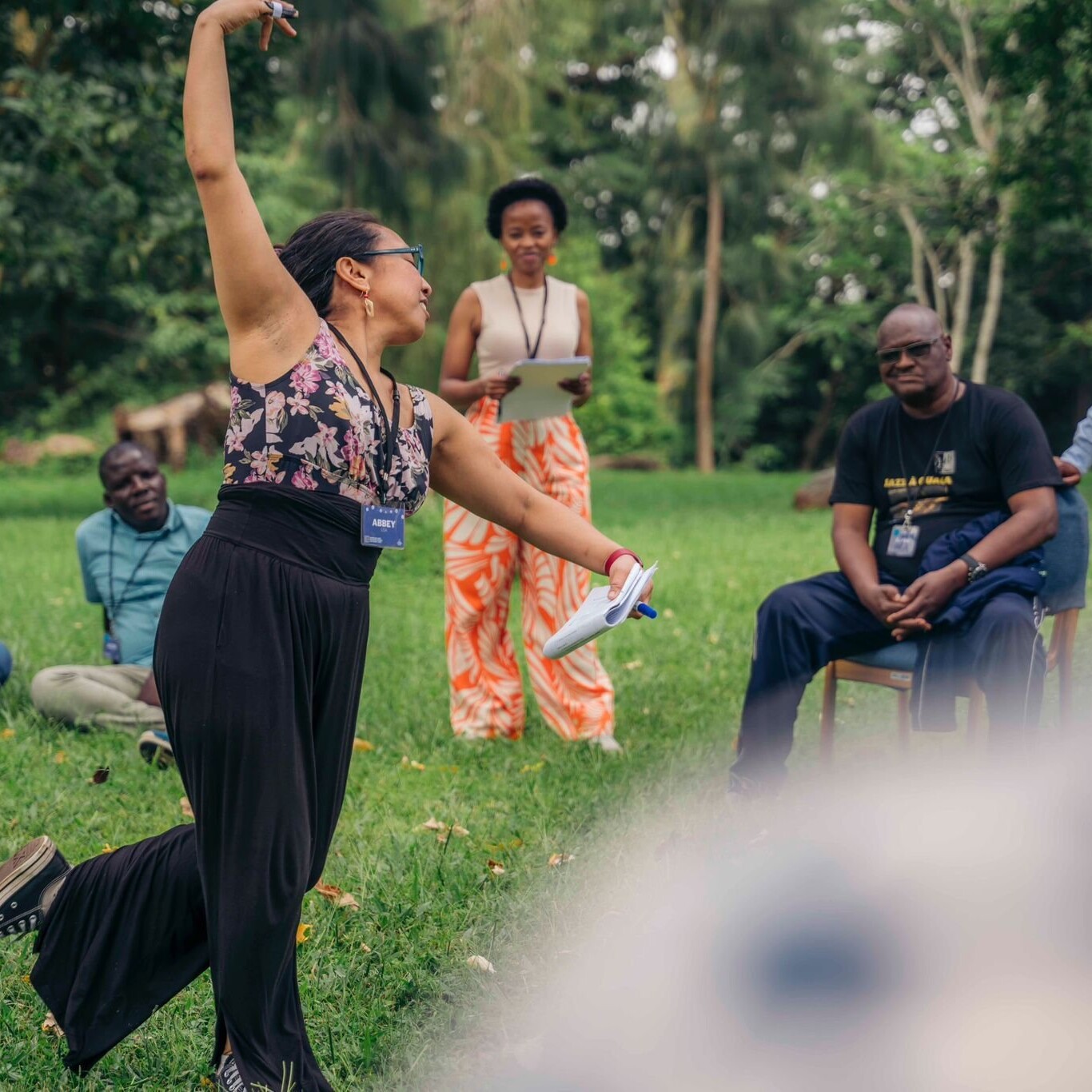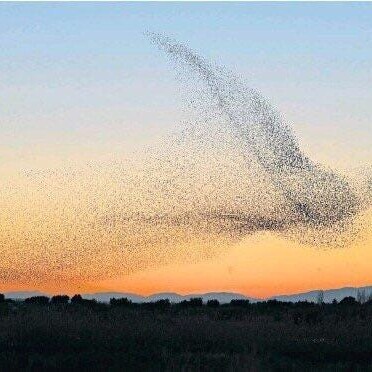At the end of 2023, we celebrated everything we’ve done in 1 year of Fito Network.
To inaugurate 2024 we are launching our first annual “Failures Report”.
We think periodically acknowledging and reflecting on what didn’t work so well is good practice — and helps us move forward.
And sharing these failures externally, we believe, can possibly help others avoid similar mistakes.
So here goes: our top failures of 2023.
1. “Welcoming” people to the network
We launched the Fito Network in January 2024 with a series of “welcoming meetings” for those who signed up to engage.
We found these were particularly good for building relationships and interest in the network — but that they didn’t necessarily translate to engagement.
So we canceled them and instead started collecting detailed data through forms on needs, interests, work, etc. But we quickly found that while this data was useful, it missed the “nuances” of what motivates people, how they “mesh” with others, and in general who they are as people.
Meanwhile, those who hadn’t had an opportunity to engage with Fito ended up missing that “feel” of the network. They didn’t get a sense of who was in the network or experience Fito’s inclusive and playful culture. In some circumstances this resulted in mismatched expectations, commitment fall-throughs, and disappointment.
We quickly realized that without welcoming spaces, we didn’t really know how to weave new people into the network.
We reminded ourselves that engagement doesn’t happen immediately, but is the long-game. And, it starts with relationships, which is usually what motivates people to commit.
So we’re now relaunching our welcoming meetings, but with a bit of a rebrand as “Fito Play Dates”, which offer people the opportunity to engage in:
-
- 🪀 Collaborative play & experimentation
- 🤝 Connecting with other amazing #weavers
- 🧩 Co-sensing their engagement with Fito
- 📍 Shaping together the network’s priorities
And since welcoming isn’t really linear — someone may feel welcomed after only one engagement; for others it may take 1–2 years of diverse experiences — we’ve also been working on a “welcoming checklist”. We’re trying to figure out how to track this across hundreds of people in a way that isn’t overwhelming but helps us identify who isn’t fully included or engaged. Over time, we can intentionally reach to these individuals to better understand what they may want or need to engage more with us.
2. Engagement opportunities for that “middle” circle
Over the past year, many people have signed up to engage with the Fito Network.
We believe the oft-cited dichotomy of “community” and “network” can co-exist, so we’ve been rapidly experimenting with processes that allow us to balance broad-scale energy and need at the field level with intentional community building and matchmaking for those who want to “go deep” with us.
But we discovered a missing gap: we weren’t offering consistent, light-touch spaces for those to “dip in and out” of as they wanted and needed.
Many were left excited by our playful, participatory, and engaging experiences at the Networks Festival but didn’t necessarily have the immediate interest or capacity to engage more regularly with us afterwards.
Maybe what we were offering didn’t fit their interests. Or, they hadn’t yet developed enough relationships with others to find value in engaging more. Or — the most common culprit — they just didn’t have time.
And we left these people hanging.
Which is why starting in 2023 we’ll be piloting two regularly occurring, lightly curated spaces for people to show up when they want to build light-touch relationships, find interesting opportunities, and experiment with new practices.
The first are “Fito Mystery Boxes”. Twice a month we will host a 60-minute open space to “play” with a creative technique — like role-playing scenes from a network, dialoging around collaborative leadership while walking in nature, or just dancing and laughing together —leaving people:
-
- ⚡️ Feeling energized and refreshed
- 🧰 With a new tool or technique they can try in your own work
- 🤝 Having made at least 1 new personal relationship
- 💡 And with a better idea of how Fito can serve their interests and needs
The second space is on WhatsApp. Up to now, our WhatsApp group has been dormant (we’re well aware!). As we relaunch this group, we plan to curate fun, creative mini-games every week that invite people to meet, exchange ideas, and share opportunities. We’re calling this the “Fito Arcade”!
We recognize these activities take extra bandwidth, and have brought on some new team members to help. We also recognize that many times such activities fail in networks, which also lead to some hesitancy on our side before we launched them. But, we think that when well-curated and communicated, they can spark vibrant and meaningful engagement. Join one and see for yourselves!
3. Trying to do too much ourselves
When we launched Fito, we began offering small group experiences completely led by us.
We designed and facilitated several “labs”, while simultaneously crafting the invitations, weaving participations, and managing scheduling and communications.
This was a lot of work, and as such we were only able to offer a limited number of experiences — much less than the network demanded.
During those months, we began to see our role as less of “delivering” experiences — and more on matchmaking people and fostering common principles and “feel” across the network.
With our Networks Festival, we piloted a decentralized process led by a small group who designed and led the majority of the sessions. We focused instead on the overall experience.
It worked well.
We then remembered that many of our closest friends were already offering high-quality learning experiences for network weavers and we didn’t necessarily need to reinvent the wheel. So, we launched the Learning Architects, where we’re bringing together network course curators to explore how they can strengthen each other’s programs, engage in co-promotion, and make their offerings more accessible.
Finally, we put a lot of effort into figuring out how to enable our Fito Facilitators to take the lead on certain Fito experiences.
To support the facilitators, we set up facilitated processes that enable a quality experience for participants but also have enough flexibility embedded in for facilitators to adapt based on their own style and who’s in the room. We meanwhile kept handling the laborious back-end work: outreach, matchmaking, scheduling, and communications.
And with this extra time, we refocused our energies on supporting facilitators themselves, strengthening their leadership capacities, facilitating peer learning, and helping access new opportunities.
What we’ve learned is that decentralizing helps the network serve many more people, but it doesn’t necessarily work in a vacuum. Stepping back completely to let others lead can actually be disempowering for leaders, and create disappointment for participants. So far, the right recipe we’ve found is focusing on careful, tailored support to each leader, giving them what they want and need to both thrive personally and deliver a meaningful and unique experience across the network.
4. Not engaging as much diversity as we think we should be
At the Fito Network, diversity is central to our mission.
We believe having diverse representation in the room is important for equitable engagement and balanced perspectives.
With our events, we’re very careful about equal representation with panelists (or “storytellers” as we like to call them). We have a number of key “nodes” we lean on a lot to help us reach new people we don’t know ourselves. And we also pay close attention to making our language inviting and accessible across cultures.
Some groups, like our Fito Facilitators, come exclusively from underrepresented groups. But with other activities we don’t see nearly as much diversity in engagement as we think is important.
There are many barriers to participation we don’t yet address, like:
-
- 💳 Financial or work constraints that restrict engagement
- 📱 Leveraging diverse channels for communication, scheduling, and reminders
- 🧑🏻💻 Dis-enabling challenges like technology access
- 🌏 Engaging in languages other than English — or across time zones
- 🎳 Offering resources to support offline activities, and particularly finding pathways for frontline communities to engage
But above all, what we’ve come to realize is that the most important ingredient for diversity in a network is…drumroll please…RELATIONSHIPS!
More often than not, this is the biggest guarantee for enabling engagement across diversity.
Which is why in 2024 we’ll be investing time in regularly analyzing our network for diversity gaps and intentionally inviting people to join curated relationship-building activities like our “play dates”.
The biggest challenge here is this takes time, and we have a limited amount of it. We know this will be a slow process, but we think being intentional about it, and continually assessing ourselves along the way, is the right path.
Stay tuned for 2024’s failures!
Some of the solutions we came up with above will inevitably fail too. In January 2025, we’ll tell you if that’s so!
In the meantime, if you have great ideas for how we can respond to our current failures, let us know in the comments below.
Written by Beverly Ndege, Brendon Johnson, Adrian Röbke, and Carolina Carvalho

In Southern Africa, the word fito (from the Sesotho language) means “joining diverse pieces or people to make one powerful effort”.
The word also has many meanings in other languages: in the native Kenyan Dholuo it refers to the rods that reinforce traditional huts, while in ancient Greek it means “to generate or grow”.
We are strong advocates for networks – collectives of people and groups where deep human relationship are at the core – as the incredible, invisible forces with the potential to shape and change our world.
Thousands of communities and networks exist around the globe to create social change. Yet despite their great potential, they are remarkably under-funded, highly disconnected, and terribly misunderstood for the impact they achieve. Our aim is to change that.
originally published at Fito Network

Network Weaver is dedicated to offering free content to all – in support of equity, justice and transformation for all.
We appreciate your support!



